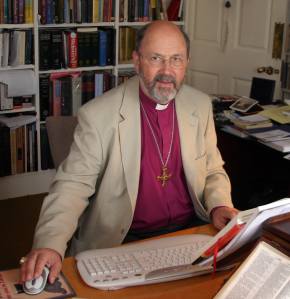So, over at Boston Bible Geeks, Danny posted an interesting list of the 5 scholars that the average churchgoer would benefit from reading. That sounded like a great idea to me, and I was interested to read his list, so I’m stealing his idea and making my own. I’ll raise my hand and admit that a good bit of the reading that I do would not be of much benefit to the non-academic. And since I’m confessing here, I’ll also admit that I felt a twinge of guilt at the statement that Danny quoted about Gordon Fee, whom I admire very much. Too much of my studying is about the Bible as an object, rather than the God it reveals, and that’s not okay.
So on that theme, I’ll list the five scholars that I think the layperson should read.
1. Gordon Fee
I’m with Danny on this one. I haven’t read his book on exegesis, but I have read God’s Empowering Presence, and if there’s any one academic book that I would encourage a layperson to struggle through, it’s probably this one. I’ve read many (too many) scholars that rebuke (rightly) our current churches, but don’t give any possible solutions. Fee isn’t afraid to offer solutions and practical advice to the average church on the corner, which is what scholarship should really be about anyway.
Recommended Reading:
Paul, the Spirit, & the People of God
How to Read the Bible For All It’s Worth (w/ Douglas Stuart)
2. NT Wright
NT Wright can be a polarizing figure and for the life of me I can’t figure out why. As far as I’m concerned everything I have read by him has been top-notch stuff that would benefit both the scholarly world and the Church. That doesn’t mean that I agree with everything that he says, and sometimes I wish he would stop blaming “our Western post-enlightenment thinking” for every problem facing our world, but I have found him always to be worth reading, and I agree with him wholeheartedly that we desperately need to recapture the new creation/resurrection eschatology of the New Testament if we are going to have any impact at all on our culture, which is dying while we sit back and watch.
Recommended reading:
Surprised By Hope (Seriously, I wish I could get a copy of this into the hands of every Christian in my city)
3. John Goldingay
Because he makes the Old Testament simply come alive, and his love for the God revealed there comes through on every page.
Recommended Reading:
Old Testament Theology volume 1: Israel’s Gospel
Old Testament Theology volume 2: Israel’s Faith
Old Testament Theology volume 3: Israel’s Life
4. Eugene Peterson
Because he’s so practical that you didn’t even know he was a “scholar”. No really, the Christian faith is a lived out faith, not just a book to be read (no matter how inspired). Peterson knows that and communicates it like no one else.
Recommended Reading:
5. Thomas Oden
Because (at least where I live, which is supposedly the most “Christian” region of the United States), the Body of Christ in the present has almost no knowledge of the generations within that body that have come before us. That’s generalizing for sure, and Lord knows there are Presbyterians here that know (or think they know) John Calvin up and down, but that’s about it as far as I can tell. Oden is doing his best to let us in on the millennium and a half that transpired before Calvin. (Note for some John Piper fans: That was not hyperbole, there actually were Christians before John Calvin).
Recommended Reading:







